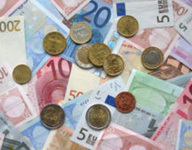Europe presses for action in 100 days
 Berlin - European leaders travel to Washington this week for the summit of Group of 20 (G20) major economies with an ambitious set of plans for reforming the world financial system and facing up to the threat of a sharp economic slowdown.
Berlin - European leaders travel to Washington this week for the summit of Group of 20 (G20) major economies with an ambitious set of plans for reforming the world financial system and facing up to the threat of a sharp economic slowdown.
But the package of measures that French President Nicolas Sarkozy is to present in Washington on behalf of the 27-member European Union has been shorn of the high-minded calls for overhauling capitalism which emerged at the height of the financial firestorm that swept global markets only weeks ago.
More recently, however, a measure of calm has returned to global share markets with governments around the world introducing a series of rescue packages for their embattled banking sectors along with a batch of economic stimulus plans.
These moves have been backed up a wave of hefty interest rate cuts from leading central banks.
Nevertheless, the Europeans will be pressing the Washington summit to forge a tougher global regulatory regime and calling on the gathering to agree on swift action to implement the changes with another summit set down for 100 days time.
"It's very clear," said Sarkozy ahead of the G20 summit. "If I don't get concrete results, I will go. I will leave Washington and go home." France currently holds the EU9s sixth-month rotating presidency.
In particular, the EU wants the G20 summit - including representatives from major industrialized nations as well as the world's leading emerging economies - to agree to plans for reinvigorating the International Monetary Fund (IMF).
Indeed, the EU sees the IMF as playing a central role in preventing financial crises and emerging as "the pivot" in the process of renewing international system.
At the same time, the Europeans hope the meeting in Washington's historic red-brick National Building Museum will agree to measures to reassert the role of national financial supervisory authorities and for closer co-operation between the bodies.
Sarkozy is expected to mount a case for bringing the world regulatory system into line with modern financial developments by extending the supervisory net to include financial markets and institutions that have often managed to sidestep regulators.
In their statement following a summit in Brussels last week, the EU leaders said Saturday's meeting should "decide that no market segment, no territory, and no financial institution should escape proportionate and adequate regulation or at least oversight."
This includes groups such as hedge funds as well tax havens, with the Europeans insisting that any proposals to emerge from the summit should be based on beefing up both accountability and transparency.
The Europeans also believe in tougher surveillance of rating agencies, which in some cases signed off on subprime mortgage market-linked investments that helped to trigger the recent round of financial turmoil.
However, analysts are doubtful that calls from some EU states for greater coordination of economic policy to help deal with economic turbulence are unlikely to gain much support at the summit, as they could raise thorny questions about exchange rate policy.
Hammering out a consensus could also be complicated as major emerging economies such as China and Russia are likely to claim that they should play a key role in piecing together a new financial order.
But even though Europe managed to sell the idea of a tough new regulatory system for financial sector to sceptics within its own ranks such as Sweden, the key problem for the EU is that it is likely to face an uphill battle trying to convince the US to come on board.
"Europe has formulated a bold position calling for more regulation than what the US would like to see," said Rainer Guntermann, senior economist at Dresdner Kleinwort.
With that in mind, the summit might also turn out to be a test of how far Washington is prepared to go in loosening its ties to Wall Street. (dpa)